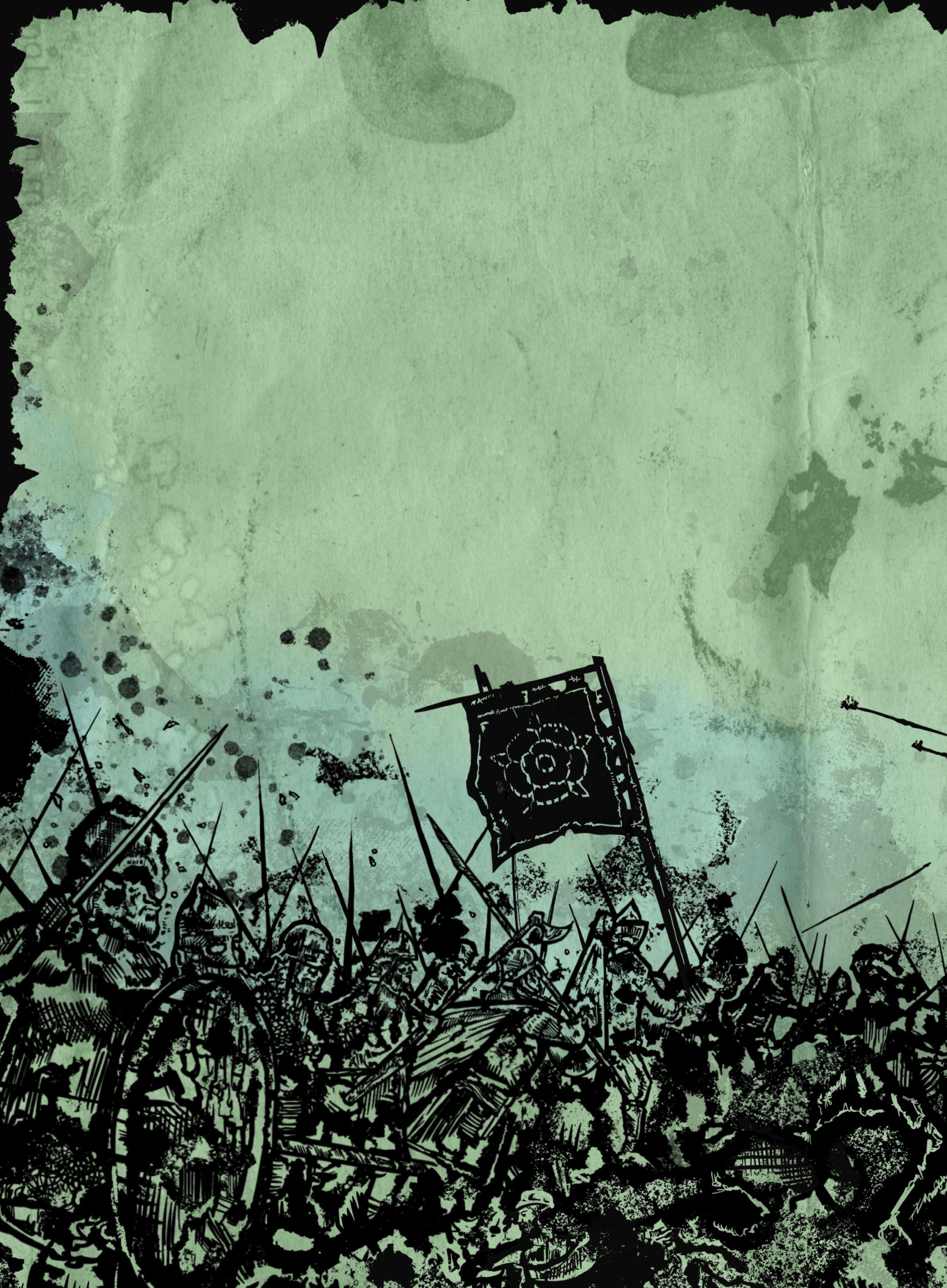
43 minute read
Little Miss Lockdown
With social media and the endless cycle of 24-hour news, it’s easy to get lost in the stories of how COVID-19 has affected adults. But with schools reportedly opening sooner than most of society, eleven-year-old Jagoda Brown-Polanowska describes her experiences of lockdown…
I am an eleven-year-old girl, I am in Year 7 and so far I have found lockdown quite boring and lonely.
I quite enjoyed it at the beginning because I had one week of learning and then two weeks of Easter break. I didn’t have to get up early every morning, or wear my uncomfortable school uniform, rush for the bus or carry my heavy bag. I could just enjoy the company of my loyal friend, my kitten Mela. Whenever I’m doing my homework she sits on my windowsill, or squeezes in-between me and my chair, and falls asleep.
After a while I really started to miss my friends, and found myself getting quite bored. My school is still setting me quite a lot of work, and when I was at my laptop I could see the sun shining outside, which made it difficult to know that I had to stay inside. By the time I’d finished my work for the day, it was already going dark and my eyes were starting to hurt.
Every morning my mum and I would go on a short bike ride to the Forest Recreation Ground which is close to my house and in the evening, once we’d both finished our work for the day, we’d go on a short walk. I love climbing trees and nature so whenever we went out I’d always look for new trees to climb. One day, while climbing my favourite tree, I saw a pigeon sitting on a branch just above me. After it flew away I clambered up higher and saw a nest with an egg, just slightly smaller than a chicken’s. When I looked up later, the pigeon had returned and was sitting in the nest. I’m trying to do lots of other things during lockdown – aside from climbing trees. In my spare time, when I’m not doing schoolwork, I like making small fires and trying to cook things like baked potatoes or simple bread made from flour and water (all supervised by my Mum!). I also made some small accessories for cooking on the fire, like a simple kettle that I boil water in to make my tea. I love drinking the tea that I make from boiling nettles. I’ve also taken up some different crafts, like making friendship bracelets, sewing, drawing and painting.
I am really missing my friends, being able to travel freely to see family in Poland and just being close to people. But for now, I make sure I talk to my neighbours over the fence whenever I see them going to the park or to the shop
There is an old Victorian cemetery near my house, and in the farthest corner of the graveyard there is a large section of graves from the beginning of the 20th century. One day I decided to go out and have a closer look, and discovered that they were mass graves with twenty or more names on each headstone. The dates were from the time of the Spanish Flu, and they were in a separate area of the cemetery with no other graves around them. What a discovery to make during another health crisis!
I’ve enjoyed bird-watching during lockdown, and have recently noticed a pair of wrens building a nest in my birdhouse. In my garden alone I’ve also seen blue tits, great tits, blackbirds, swifts, robins, wood pigeons and swallows, as well as a mallard in my neighbour’s pond. One day I even saw a skein of geese flying above my house.
The extra free time has also given me the chance to do a bit more gardening, and my neighbours and I have both planted sunflowers, and are racing to see which of us will grow the tallest and prettiest flower. I’ve grown quite a few little tomato plants for my neighbours too.
Before the pandemic, I had created a little business called Blast from the Past, where I sold parchment paper, origami envelopes, bookmarks and maps, all made with my own secret design. I sold quite a few before coronavirus, but sadly I have not sold any items since it started. I have very friendly neighbours who I enjoy talking to and are always eager to buy things that I make. I’m saving all of the money I make from this business to buy a laptop.

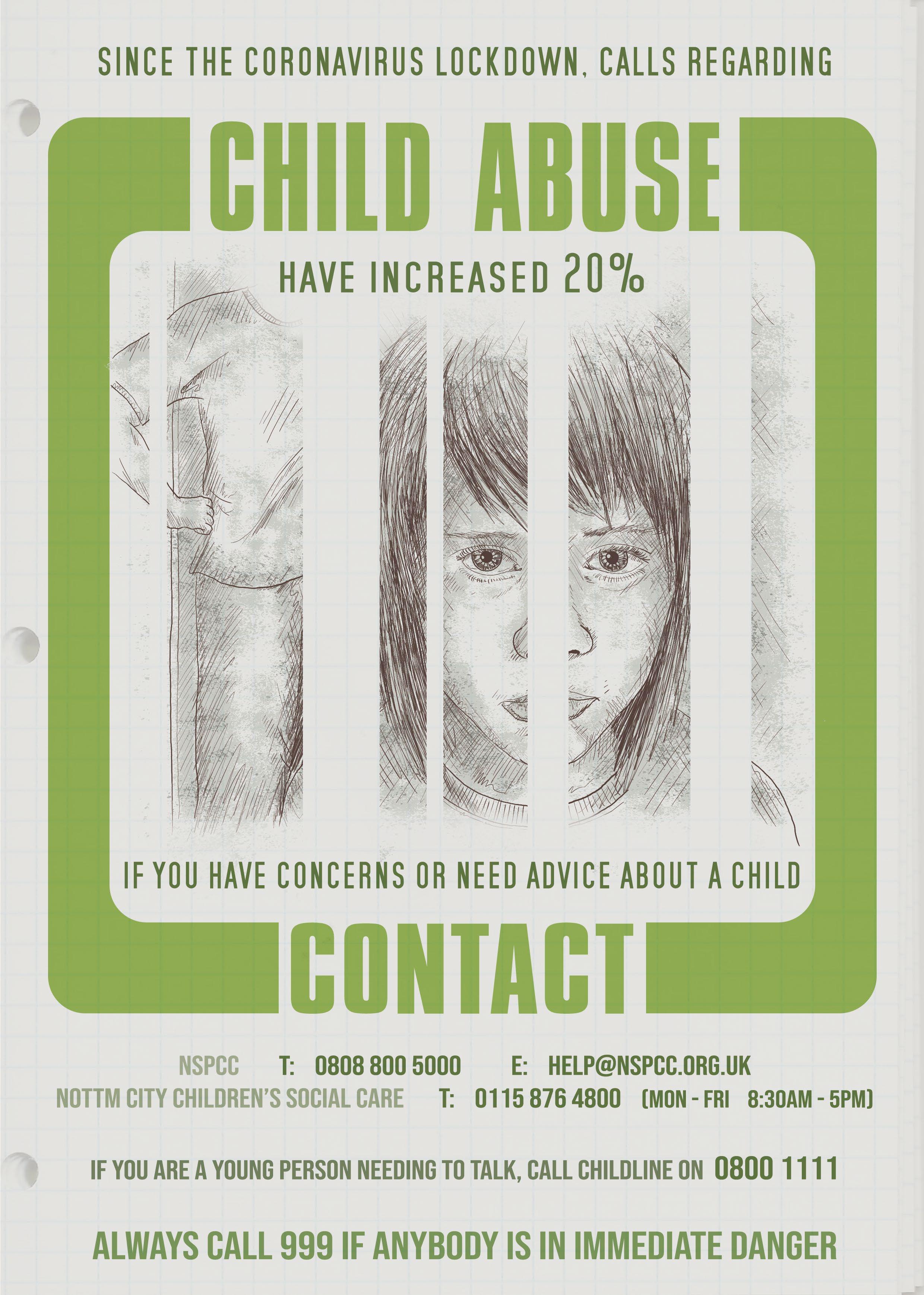
SELECT LOCATIONS NOW OPEN FOR TAKEAWAY COFFEE, CAKES AND BEERS
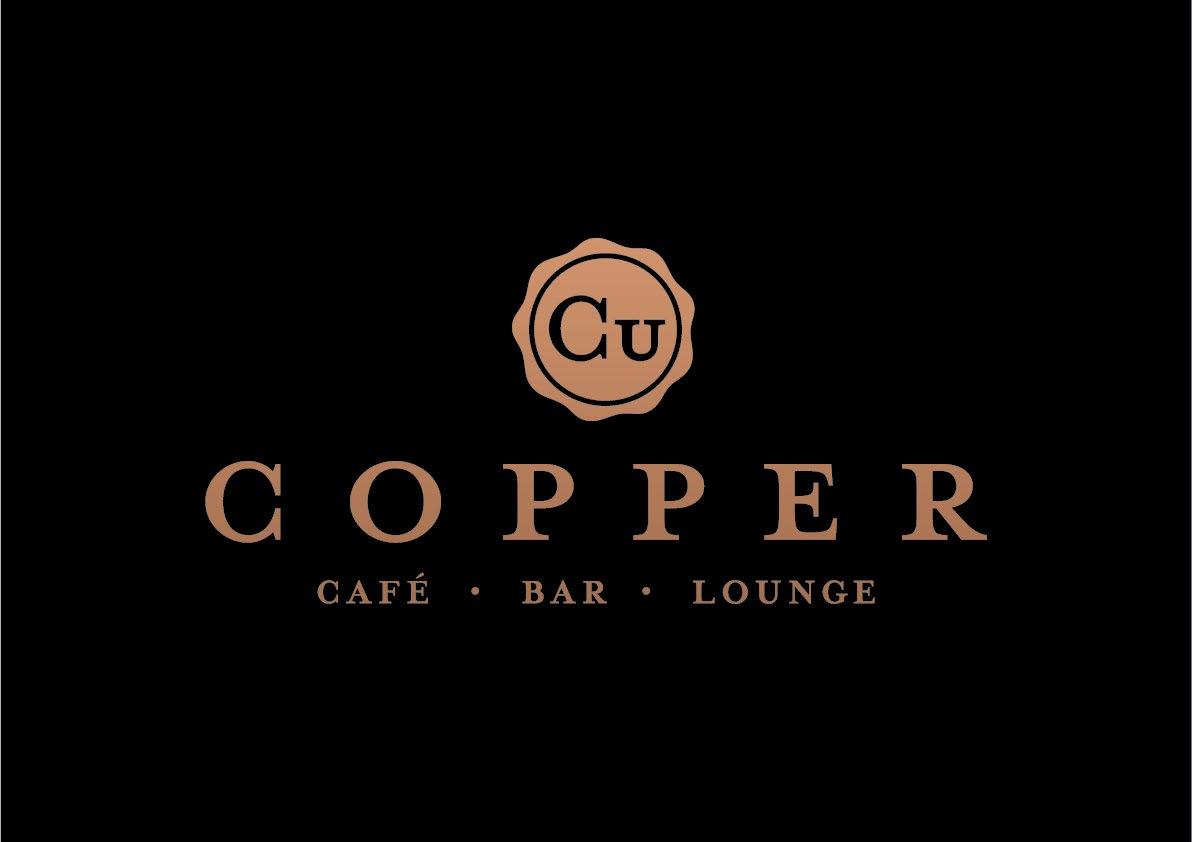
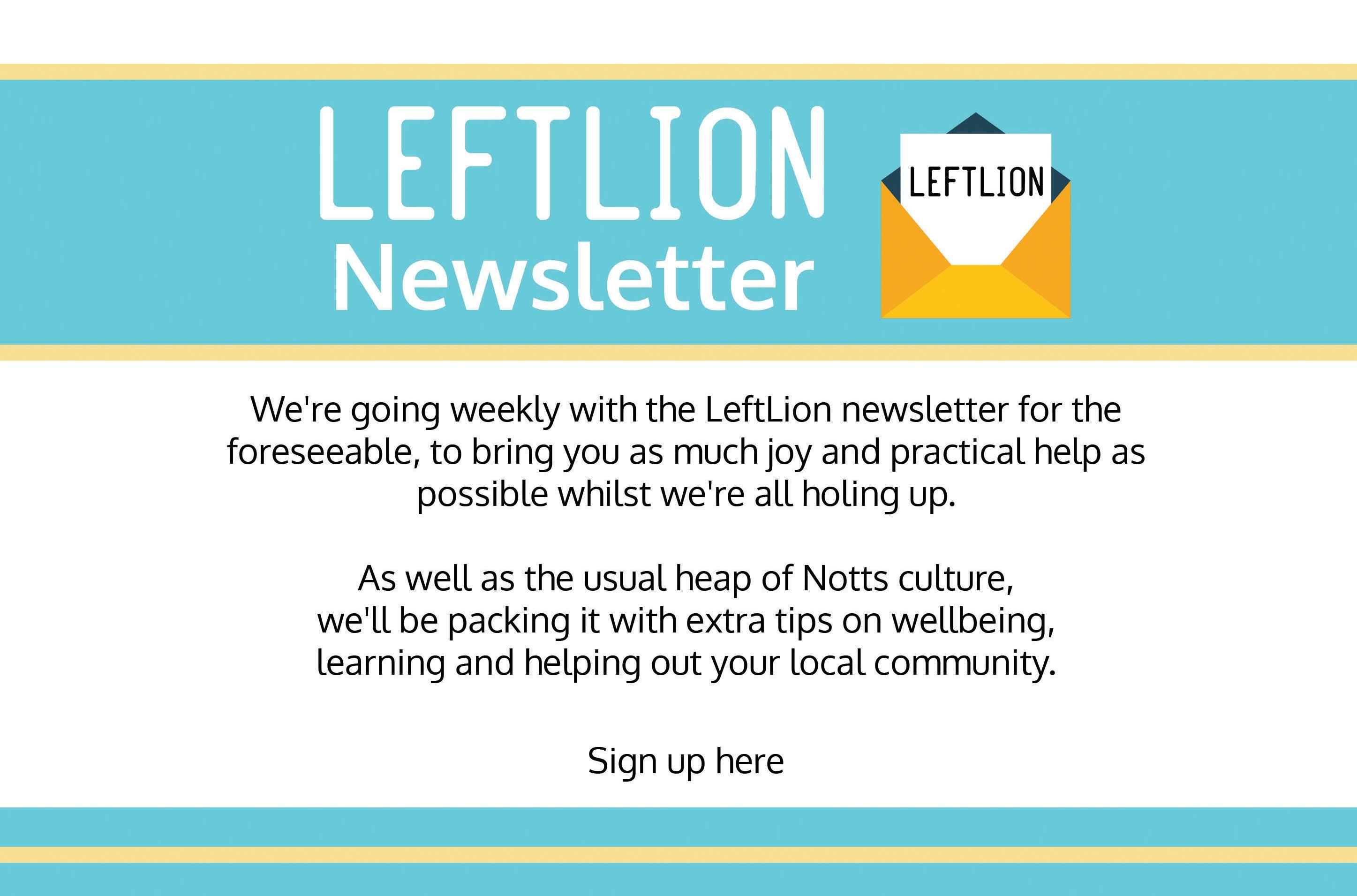
Those who had holidays booked as the COVID crisis began to escalate were faced with a difficult decision: to go ahead with their plans and risk getting sick or stranded, or give up their hard-earned holidays and take the financial hit. But for some, the situation was out of their control, as they were already abroad by the time the health crisis had become a serious issue. With panic starting, misinformation spreading and lockdown looming, they faced a ticking clock to get back to the UK before it was too late…
“We felt desperate and could not see a way out,” Pete tells me. “We’d heard that Russian newspapers were blaming COVID on British tourists deliberately spreading the virus around the world, and you could tell that people just wanted us to go away.”
Pete and his wife Karen have been visiting Goa in India, for sixteen years, but this was the first time they had ever felt unsafe in the area. Chemists and shops had denied them entry, local residents had crossed the street to avoid them and the man they had hired a motorbike from had informed them they could no longer use it. “He told us that it would be him that got the beating from the police if we got stopped as he was the registered owner,” Pete explains. Unable to get food or medicine without a lengthy journey on foot, and unsure whether they would even be granted access on arrival, they made the difficult decision to cut their trip short and return to the UK as soon as possible.
It was a situation thousands of Brits found themselves in as the true impact of the COVID crisis became apparent. But with the entire world in a state of shock, unsure of what was safe, getting back home wasn’t going to be easy. “We’d tried to get flights for two weeks prior to lockdown, but they were only available from Mumbai Airport, which was several hundred miles away,” Pete remembers. Unable to get transport, this was not an option for the couple, but the Qatar Airways website listed an office located fifteen miles away from where they were staying: “When we finally got to the office there was a note on the shutter door saying that they had moved several years previous.”
Rob and Marie also found themselves in Goa as lockdown measures came into effect. Having been there since early January, they monitored the situation closely before deciding to cut their four-month trip short. “We discovered that our return flight had been removed,” Marie describes, “but no notification had been sent to us.” They managed to book tickets on another flight with Air India, only for that to be cancelled too. “By this time we were beginning to panic,” she explains, “but we finally managed to book a third flight back to London via Qatar.”
people know their National Insurance number while on holiday?” After enlisting the help of their son back home, the forms were eventually completed, but the situation still remained unclear, as their place on any potential flight couldn’t be guaranteed. “We just felt that we’d be refused a flight because there was so much uncertainty,” he says. “We felt so much stress, hopelessness, embarrassment and anger.” And even if they could get a flight, they still had no way of getting to the airport: “The internet was full of people in the same boat as us,” Pete says, “Taxis could only travel with a police pass, which we didn’t have.”

Todd Franklin was in the last two weeks of a sevenmonth working holiday in New Zealand, along with his partner and a friend, when the COVID crisis first started to escalate. “The NZ Government had been so good that things didn’t seem to really affect people that much,” he tells me. “We were keeping up to date with the reaction back in the UK and it just seemed laughable in comparison.” That all changed, however, when the announcement was made that the country would be going into lockdown within 48 hours. “That’s when shit got real for us,” he remembers.
Making the decision to leave the house in which they’d been staying, they checked in to a hotel in Auckland. “We decided to book it for two weeks,” Todd says, “there weren’t any cheaper options, so we just had to suck it up.” As was the case all over the world, the biggest problems arose from the lack of information, as well as the constant risk of flights being abandoned. “People were spending thousands of pounds on flights that were getting cancelled,” he remembers, “we only had enough on my credit card to book one flight home, so we had to make it count.”
“There was no cash flow,” Todd says. “The only hot meals we could have were Asian noodles with boiling water, but that soon got too unhealthy.” Making the decision to email Lillian Greenwood, their local MP back in Nottingham, they finally had a breakthrough. “She was great,” Todd explains, “she immediately emailed me back to say that she had put our concerns up the Governmental chain to add more pressure.”
Ten days into their two-week hotel stay, Todd finally managed to book a flight home. “There was still some weariness from us though,” he recalls, “not until the wheels of the plane had left the tarmac could I be certain that we were leaving.”
After being told that their flight had again been cancelled, Rob and Marie were to discover that it had, in fact, just been oversold, and they were the unlucky ones missing out. “The airport was utter chaos,” Marie recollects, “We managed to get ourselves on a flight the next day, which was then cancelled again.” With desperation setting in, and the Indian lockdown just eight hours away, they refused to move from the desk until they were given a seat on a plane. “They eventually let us check in,” she tells me, “but there were at least fifty people left behind.” Their flight took off just thirty minutes before lockdown began.
After the rigmarole of booking a seat, stranded Brits were soon to find that the flights themselves were as bizarre as getting on them had proved difficult. As Marie says, “It was a very strange experience. No one on the plane was speaking – it was just a silent flight.” Having finally managed to get themselves on a flight home, Pete and Karen found the flight equally odd, “We were issued with two litres of water and a can of coke and told it would have to last the entire flight,” Pete remembers, “Even the toilet paper in the cubicle ran out and they refused to replace it.”
leftlion.co.uk/issue125 40 Fortunately, all three parties made it back to the UK safely, although that wasn’t where their problems ended: “We were told that only people from our household could collect us from the airport,” Pete tells me, “But that wasn’t possible, so we had to pay £127 for a taxi.” But for Rob and Marie, the price of travelling back paled in comparison with the feeling of arriving safely in the UK: “We felt lucky to be home, but strange because we arrived back the day before Boris announced the UK was going into lockdown,” Marie remembers. “We just lived in the hope that we had made it through virus-free. To date we still consider ourselves very lucky.”
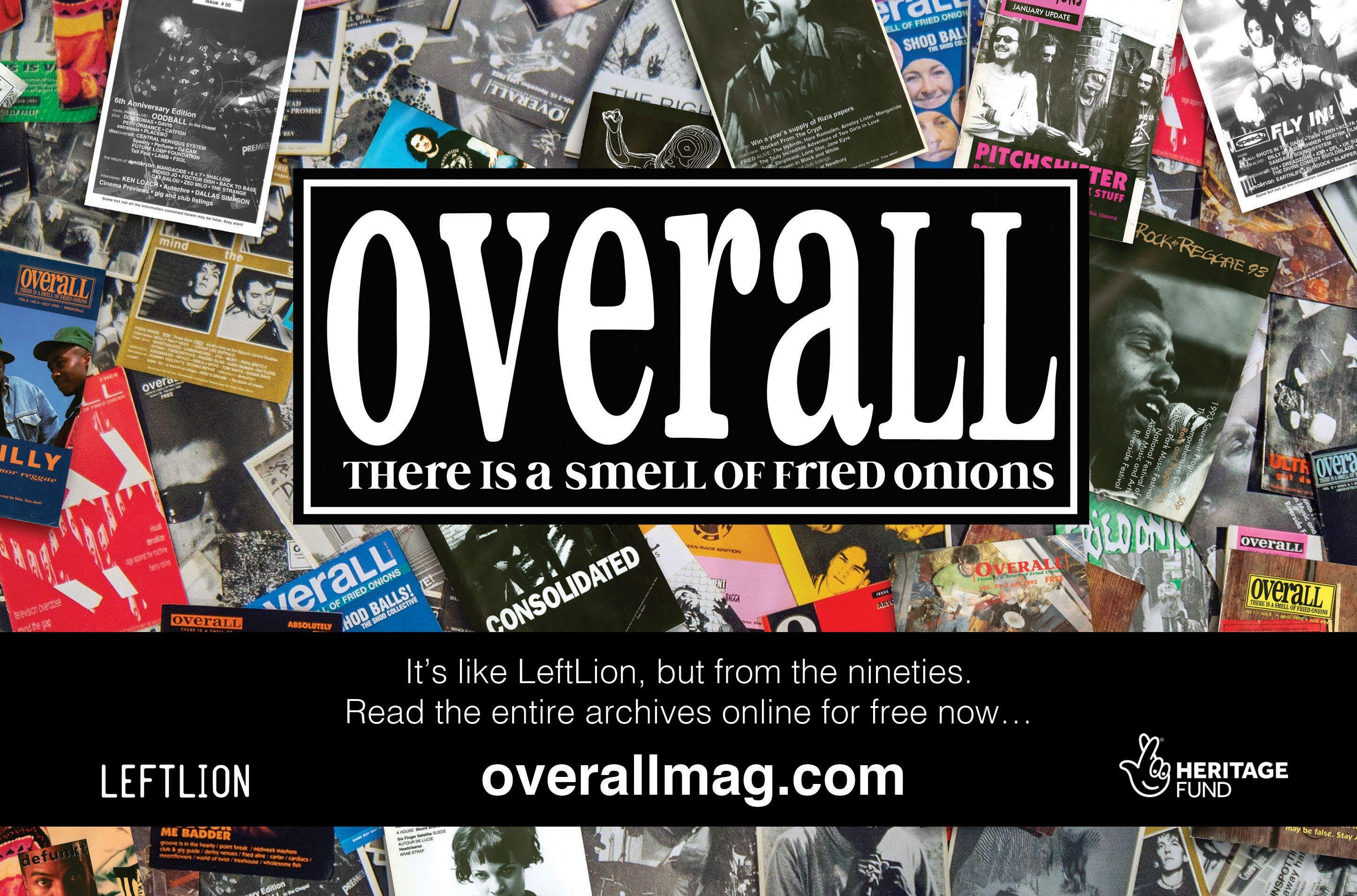
TRENT NAVIGATION MINIKEGS
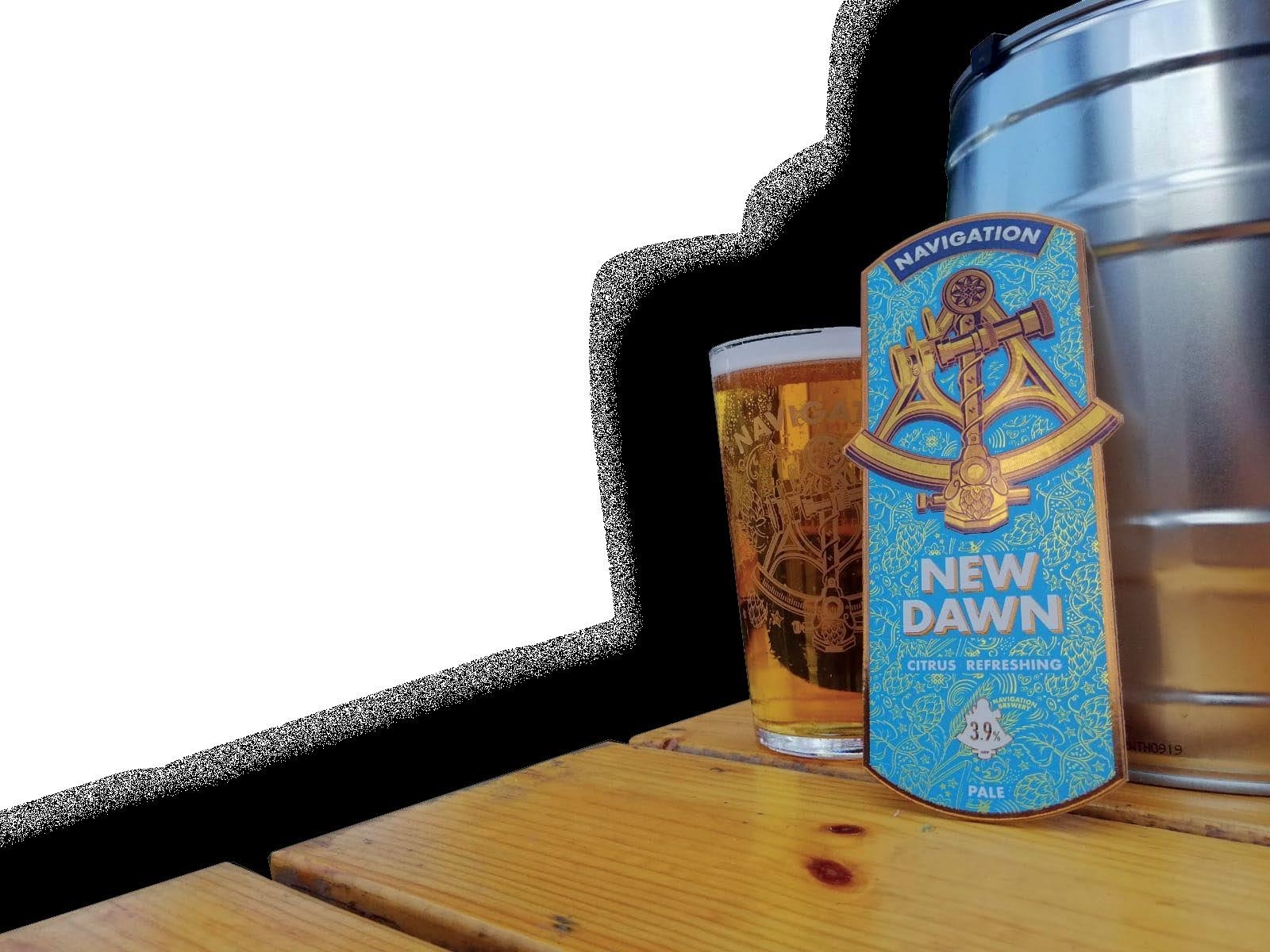

greatnortherngroup.com/shop
With the aim of encouraging people to reflect on their lockdown experiences to create a written legacy of the COVID crisis, the National Justice Museum’s new Letters of Constraint virtual exhibition is looking for your participation. We talked to Dr Martin Glynn, the museum’s writer in residence, about how you can put pen to paper and be part of Nottingham’s lockdown story...
The National Justice Museum is inviting Nottingham residents to share their experiences of lockdown as part of their new Letters of Constraint virtual exhibition, with your contributions helping to provide a lasting snapshot of life during the pandemic.
The exhibition aims to bring together a broad range of experiences from people of different backgrounds, perspectives and viewpoints to show later generations what life was like during this difficult, but historically significant, time.
Leading the project is Dr Martin Glynn, a criminology expert and the museum’s new writer in residence, who believes that Letters of Constraint can help people to process the utter madness of this whole situation. “The objective is to create a platform for people in the wider community to creatively engage through letter writing, so that they can express their thoughts on Covid-19,” he says. “The project provides a space for people to embrace their emotions and come to terms with life in lockdown.
Writing letters has provided a source of escapism for countless people throughout history, Martin says, “Whether it was the Black Death or the Fire of London, people have always written letters as a way of overcoming difficulties in the world… Hopefully people will find it therapeutic to get involved.”
As an avid letter writer himself, Martin is vocal about the benefits of putting pen to paper: “I’ve been writing letters for over five decades. I have written to prisoners and people on Death Row, I even write to people who are no longer here, like Oscar Wilde, to imagine what I would say to them if they were still around,” he muses. “I find it relaxing to get things off my chest. Letters are really impactful, but with the growth of online activity we seem to have forgotten about the joys of writing.”
The Letters of Constraint campaign encourages people from across the city, and the country, to take a moment to reflect on current circumstances and note down their thoughts and feelings. Whether hand-written or typed, anonymous or signed, the National Justice Museum is keen to get as many letters as possible for their virtual exhibition, to guide subsequent research and build an insightful time capsule for the future. So far, plenty of people have been getting involved, sharing their thoughts on coronavirus and explaining how their life has changed since the outbreak of the pandemic. “We’ve had a fair few letters come in,” Martin says. “They’re mostly autobiographical, with people talking about who they are and how they’re feeling during this period. Some letters are uplifting and some are quite sobering, but they’re all important artefacts showing how people thought during this time.
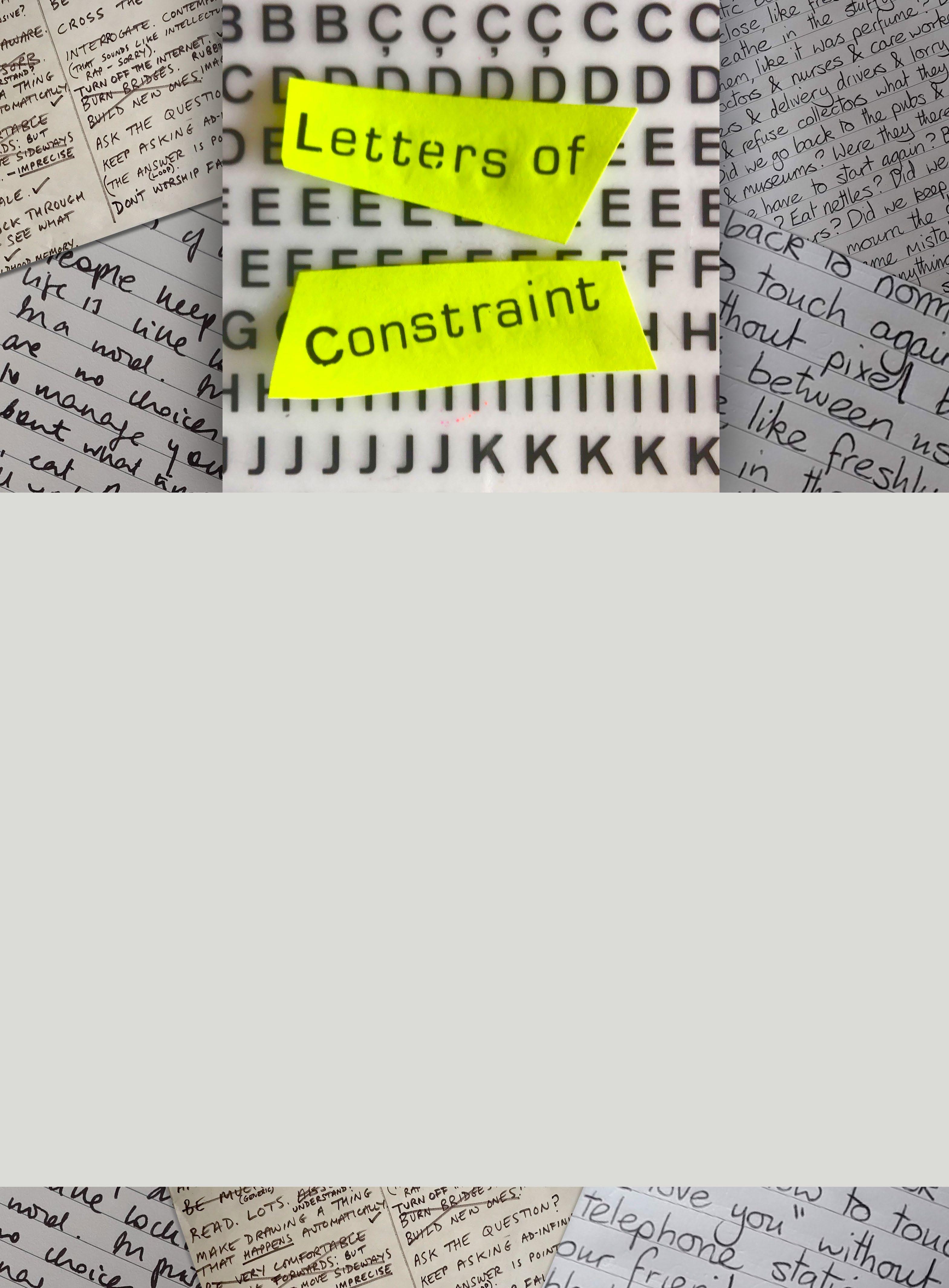
I was concerned that this moment would come and go without an analysis of how people actually feel; politics has threatened to obscure the human experience of the crisis, but this exhibition will make sure there is a legacy piece showing how people coped, grieved and got through.”
As well as contributing to the virtual exhibition, people’s letters will be used to create an audio artwork that encapsulates the key themes and feelings of the nation. Martin’s main job is to create a “letter writing mashup”, which involves deconstructing each letter, looking at their key messages and presenting these as a “letter to coronavirus” that summarises how the country has been feeling throughout this period.
Extracts from some of the letters will be shared anonymously on the National Justice Museum Twitter account with the hashtag #LettersOfConstraint, to help share people’s experiences and create a sense of solidarity and community while we remain separated. The museum is still hoping for more contributions though, having found that a lot of people are unwilling to share their experiences. “What’s interesting is how many people have tweeted that they won’t write a letter because they don’t want to be vulnerable,” Martin says. “I worry that we’ve become so insular that we no longer open up. I’m hoping this project can bring some sensitivity back to people.” Folks in Nottingham have until Friday 12 June to send in their letters, and can do so by email, Twitter, the NJM website or a good, old-fashioned Royal Mail delivery.
Getting people from the area more actively involved in the museum is something that Andrea Hadley-Johnson, the National Justice Museum’s Artistic Programme Manager, has been trying to promote since she came into the job eighteen months ago.
“It’s vital that exhibitions involve the people of the city and the UK in each stage of conception, production and delivery. It’s important that museums include and represent people and their experiences with empathy and respect, in order for us to better connect with one another,” she says. “These projects are crafted to create the right conditions for connectivity, shared opinions and the discovery of new perspectives.”
This is echoed by Martin, who hopes that the Letters of Constraint exhibition will provide a springboard for a more interactive, community-led experience at the museum.
“In the early stages, I felt that some people came and looked at stuff but didn’t really experience the exhibitions. I was a bit concerned that they had a slightly voyeuristic approach to justice,” he admits. “I wanted to help provide a more immersive, holistic experience. Hopefully this project encourages wider engagement within the museum - and museums more generally. We’re looking to combine nostalgia and memories with something more shiny and new, so it can become a destination for people to come back to because they have a connection to the place.”
One thing that certainly isn’t constrained is the museum’s ambition, with the museum team hoping to provide unique, enjoyable experiences once the world starts to open up again. In the meantime, virtual exhibitions such as Letters of Constraint provide an interesting outlet for contemplative minds – and a chance for the people of Nottingham to become part of history.
nationaljusticemuseum.org.uk/lettersofconstraint @justicemuseum
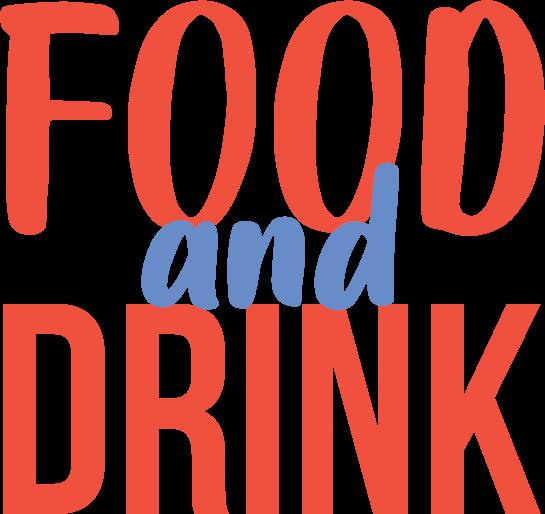
keeping it green
Amid a global pandemic, it’s easy to forget that we’re still facing another world-wide crisis: climate change. While being eco-conscious can sometimes come with cost and inconvenience, Sneinton social enterprise Foodprint makes doing the right thing super easy, selling low-cost food that’s been saved from supermarket scrap heaps. We speak to physical marketing manager Izzy Corlett about how the shop is coping at the moment...
With stacking the shelves, serving customers and sorting out stock, supermarket workers have been key in keeping our shops running smoothly and helping create some level of normality. While big chains dominate the press, it can be easy to forget the smaller, local shops that are having to cope with challenges of their own. Foodprint is run by students from the University of Nottingham, who have been juggling keeping the shop functioning in the midst of their exams.
“When COVID-19 was announced as a pandemic, our uni went online, and we had this mad rush where we were shifting business operations and working out how to run everything,” Izzy says. “We had a moral dilemma between helping out those in Sneinton – because it’s a low-income area, we have to make sure that we are providing food to those that needed it – and saving food waste, which is one of our main points of agenda, as well as keeping people safe.”
There was no question as to whether they would stay open or not: “There was such a big demand for food that we had no other option but to keep running, keep getting food in and selling it on to those who needed accessible food.” One key change has been the way the shop functions: Instead of perusing the wares, you have to tell the volunteer manning the stall outside the door what you want, who then collects it from the shelves inside and brings it to you.
All the profits from the shop then go to the redistribution of the food – something that is especially key during these times when people are struggling to afford food or get to the supermarkets themselves. Izzy continues: “We're supplying food to food banks, homeless shelters, and food parcel providers, which is impacting 850 people. We're also providing food parcels, reaching 51 people across two retirement villages.”
As the students are largely operating Foodprint from their homes at all different ends of the country, they are largely relying on volunteers to facilitate it all. Tasks undertaken by volunteers include unpacking the shop’s weekly delivery of surplus food on Friday, and serving customers when the store is open on Saturday. “We’ve been lucky to get loads of new volunteers recently,” Izzy says. “The Nottingham community and surrounding areas have really come together to help out the store.”
If you’ve got spare time on your hands and are thinking about becoming a volunteer yourself, there’s plenty of reasons to give it a go. Izzy concludes, “It's a great thing to be part of, in terms of saving food waste and making food accessible to many people. The store itself is part of the community, which is really lovely too.” Next time you find yourself ambling in Sneinton on the weekend, why not pick up ingredients for your next few meals? After all, food that is tasty and sustainable is a recipe for success. a It’s easy to gravitate towards restaurants you’re familiar with when it comes to ordering takeout. Whether it’s a late night order, a pigout with friends, or you just can’t be bothered to cook, there’s not many situations which result in a delivery where you’d be happy with a dud pick. Sometimes it’s not worth the risk of picking somewhere new, so we get stuck in a rut of re-ordering Wagamama’s katsu curry until we’re sick of the sight of the stuff.
However, the influx of ‘Deliveroo only’ establishments popping up as I scrolled down the app made me curious. Some are small, independent businesses using it as a way to launch their product to the masses, and others are just folk cooking in their mam’s kitchen, trying to earn a few more coins. Boo has a physical store in Leicester but is available on Deliveroo only in both Manchester and Nottingham, the latter from a base in Lenton.

A glance at their Instagram quickly confirmed they were legit, and learning they’re also a stockist of Doughnotts proved that they have good taste. Interest spiked, their pictures sealed the deal – I’ll challenge you to find anyone who wouldn’t be tempted by those expert shots of crinkle fries and shiny brioche buns with cheese topping every morsel.
We went for the Boo for 2 deal, which includes two 6oz triple-stacked burgers of your choice, two fries, the choice of eight buffalo or sticky chicken wings, and a choice of two house dips – all for £25.
I have an unwritten rule of judging a new burger establishment by their classic cheeseburger, which in Boo’s case includes Angus beef, round leaf lettuce, tomatoes, gherkins and American cheese – it was everything the picture had hyped it up to be, each mouthful as succulent and decadent as a burger should be.
But, surprisingly, it was the chips that really stole the show for me: somehow smoky and sweet at the same time, there’s just something ultra-satisfying about the taste of a crinkle ‘ziggy’ fry.
With £2.70 delivery, the two of us were stuffed for just under £15 each, which is no mean feat.
My phone goes off – it’s probably my family wondering why I’ve skipped the last eleven Zoom catch-ups. Wait, no. It’s a notification from Deliveroo. They’ve put a new contactfree service in place in order to minimise the ri…
That’s all the information I need, thank you. My brain had hardly finished processing the information before the app is open and I’m scrolling through what, just moments before, felt like the most forbidden of fruit. My eyes land on The Filthy Vegan, who are offering a superb £25 Payday Bonanza special. This is kismet.
The deal included two giant meat-free kebabs (each is meant to serve two), curly fries and a milkshake. Jesus, a vegan milkshake. It’s been too long my friend.
There isn’t a scent that can bring joy quite like ooey, gooey chocolate chip cookies fresh out of the oven. Luckily, the wonderful folks at Tough Mary’s Bakehouse have got an amazing recipe to satisfy all your sweet tooth needs. Share them with friends, drop them outside nan’s house, or just scoff the whole batch yourself…
words and photo: Kate O’Shea
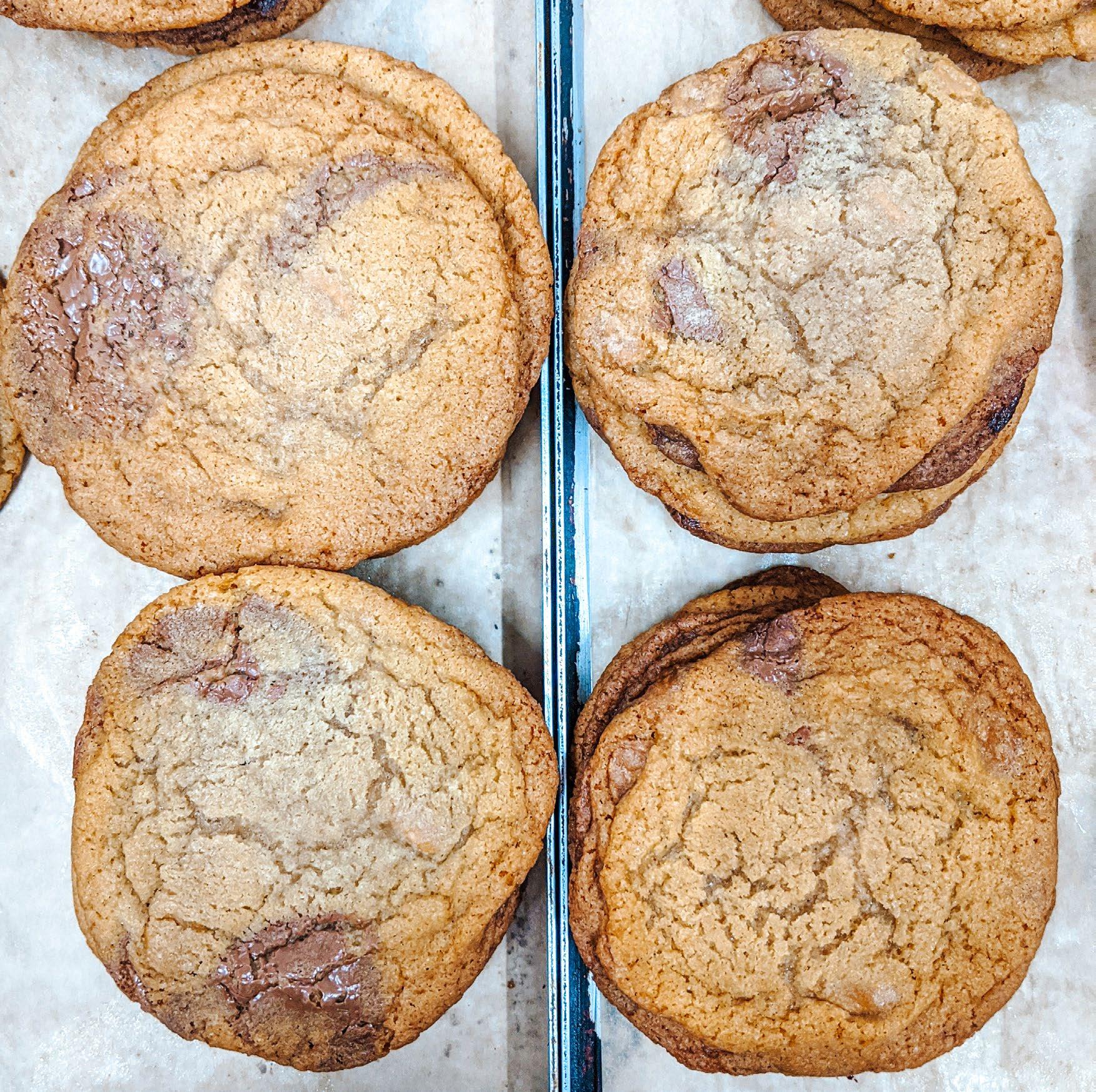
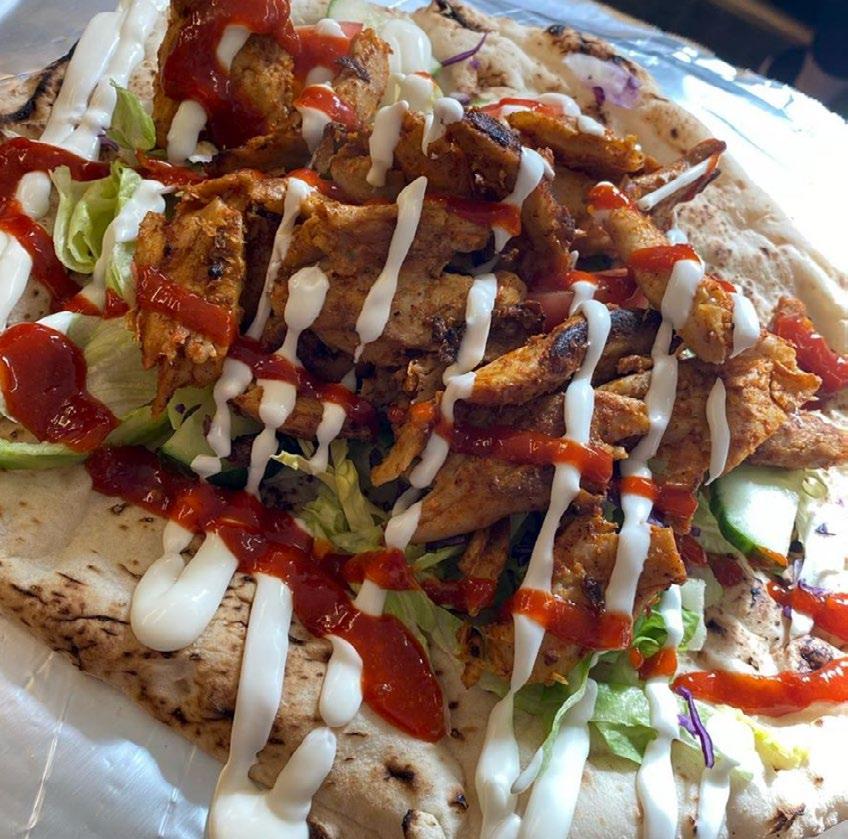
I tell myself that the serving size is probably just hyperbole, and convince my wife of the same. “Let’s just share one,” she argues, sensibly. “But you don’t like cucumber,” I counter, “And I can’t possibly have a kebab without cucumber. Plus, it’s a DEAL!” An impressively short amount of time later, and I’m staring at a mountain of food that would embarrass Mr Creosote. With a deep breath of fake confidence, I assure my wife, who I’d just inadvertently entered an eating contest with, that we haven’t been excessive, still clinging to the cucumber argument like a lifebuoy.
As intimidating as this edible Everest is, the first mouthful is sublime. Moist, delicious soya meat is complemented with sriracha and mayo, all topped with enough salad to feed a farm. Without wanting to tiptoe into hyperbole, the soya kebab pieces were one of the nicest meat replacements I’d ever eaten. And while naan bread is notoriously bad at travelling, this retained all of the warmth and softness you’d expect at a restaurant, wrapping around the generous filling like a big delicious duvet.
I made it about three-quarters of the way through before my hubris was punished with an admission of defeat. This was Man vs. Food, and food had won. Comprehensively. The pain of greed was only matched by the agony of knowing how much of that incredible kebab wasn’t going to get finished. As I glanced over to my wife, proudly displaying an empty plate with a wry smile, my humiliation was complete. Same again next Friday, yeah? Jason Edgar
Makes about 19 cookies at 50g
Ingredients 185g Unsalted butter, soft 140g Soft light brown sugar 105g Caster sugar 1 Egg 3g Vanilla paste 4g Baking powder 5g Bicarbonate of soda 2g Salt 250g Flour 140g Chocolate chips
Method 1. 2. 3. 4. 5.
6. Cream the butter and sugars together until lighter in colour. Add the egg and vanilla paste and combine. Whisk the flour, baking powder, bicarb and salt together in a bowl and add to the wet ingredients. Add your chocolate chips. Ball up into cookies (I weigh them so that they are all the same size. It sounds picky but this way they'll bake in the same time in the oven and expand to the same size on the tray). Refrigerate overnight. Bake at 160℃ (fan oven) for 12 mins, turn tray and bake for 1 or 2 mins more. I like them when they're a bit under in the middle and just going golden around the edges.
Substitutions Flour: Use whatever flour you want or have. The first time around I used strong white bread flour, then the second time I used einkorn. The einkorn ones spread out a bit more but were still super tasty. You can even use a mix of different types. Also, if all you've got is self-raising flour, then maybe leave out the baking powder. Chocolate: Use whatever chocolate you want, and perhaps throw some nuts in there too. You can also pay homage to Milk Bar and put pretzels and crisps in your cookies (after all, sweet/salt = delicious).
At the Coalface

After decades as a Labour stronghold, Mansfield decided to elect a Conservative MP in the 2017 General Election. The result, which came as a shock to many, led local filmmaker Jay Martin to make Red’tBlue, his upcoming documentary which explores why the ex-mining town turned Tory…


How did you get into filmmaking?
I have always had an interest in storytelling, whether that was through films, novels or even music, so I eventually decided to study a BTEC in Film and TV Production at Confetti. I made two films while I was there. One was a documentary called NG2 on Nottingham’s first serial killer, Mark Martin (I’d like to emphasise he’s no relation to me), and another was a narrative film called Catharsis, which follows a businesswoman who struggles to deal with the loss of her daughter. Confetti was a really good place to study and I fell in love with filmmaking while I was there.
Who have been your main creative influences?
Ashley Carter was a big inspiration for me, especially with his documentary Shaun Barker: One More Time. He showed that you can make high-quality local documentaries on a small budget, while keeping them approachable for the target audience. More broadly, I’m a huge fan of Nick Broomfield’s work. His run and gun approach is really interesting, and he has a natural ability to insert himself into his work without feeling intrusive. I was lucky enough to hear from him during one of Confetti’s Industry Weeks, which was great.
What made you want to make Redt’Blue?
I was born in Nottingham but I’ve lived in Mansfield most of my life, so I have a real connection to the area. The mining industry had a massive impact on the community, and the Clipstone Headstocks are like a ghost watching over the town. I was toying with the idea of doing a documentary solely focused on Mansfield’s mining history but I also have a strong interest in local politics, so I decided to combine the two. I think the shift from Labour to Conservative really expresses the change in the attitude of the town, as they feel they’ve been left behind as pits were closed and jobs were lost. I wanted to bring that to light.
How did you come up with the name?
‘Red to Blue’ was always the working title of the film, as it is a succinct way of telling you what the film’s about – and it perfectly mirrors the narrative arc of the movie. But I was in the pub with my mates and one of them had the idea to shorten it down, so it would better reflect our dialect. I thought that was a brilliant idea and helped to give the film more of a clear identity.
Did you hear many interesting stories during filming?
Absolutely. I had so many raw, honest interviews about what it was like down the pit and I formed a real emotional connection to everyone I spoke to. One of the interviewees talked about how her uncle lost his leg in an accident. That really highlighted how dangerous the work was. What was fascinating, though, was that lots of the former workers still spoke positively about their time in the mines, despite how difficult it could be. It was strange, really, because it was like they were talking about a different world; an era that’s almost been forgotten. You couldn’t imagine any of their stories happening now.
Do you think more working-class stories need to be told on the big screen?
I actually think we are getting better with it. Places like Nottingham are becoming great hubs for filmmaking. There are now a lot of talented people wanting to tell working-class stories, such as Luke Radford, whose documentaries bring attention to things like the rise of food banks in the area. The BFI Academy at Broadway is also great for bringing through new talent in Nottingham. I will say that I’d like more people focusing on regions outside of the city, in places like Mansfield and Bulwell. I hope that movies like Redt’Blue can help to establish more of a filmmaking base within these smaller communities.
Why should people check out the film?
One of our aims is to be educational. We want to let people know the real story behind the shift in voters’ decision-making in areas like Mansfield, and I think there will be interest in that both locally and nationally. The film is also a celebration of the town – we used a lot of iconic places in Mansfield during shooting. I think this is one of the first movies to focus on the community since the 1970s. It’s a place that’s often forgotten about, and can sometimes be the butt of the joke in Notts, but there are a lot of interesting stories to be told there and I think this is one of them.
How can people support the project?
We’ve launched a Kickstarter to help generate enough money to release the film. We’re looking to raise £2,500 to pay for our archived footage. The BBC has given us a generous rate, but without paying them we can’t bring Redt’Blue to audiences. I’ve already put £3,000 of my own money into the project but we need that little bit of extra backing to get over the line. Supporters on Kickstarter can get fantastic benefits, including digital posters and copies of the film, an album of the original score and an invitation to the cinema premiere and after party.
You can keep up-to-date with Red’tBlue on Facebook, and support them via their Kickstarter page, which launches on June 1
Our new regular feature delves back into the LeftLion and Overall There is a Smell of Fried Onions archives to find what Notts was up to back in the day...
From the pages of Overall magazine...
Music Festivals
It was approaching festival season in Nottingham, but before the likes of Splendour, Hockley Hustle and Dot To Dot everything was a bit different from today. Landmarks was a Top Valley-based festival with a carnival and samba band, promising a music line-up of jungle, techno, rappa, hiphop reggae and rave. The Nottingham Guitar Festival was a celebration of the six-string, featuring some of the best riff, lick and shred merchants from around the globe including US jazz merchant Stanley Jordan and Remy ‘The Doctor’ Ongala from Tanzania.
Film
Batman Forever (dir. Joel Schumacher) Apollo 13 (dir. Ron Howard) Once Were Warriors (dir. Lee Tamahori)
Theatre
Alan Bennett’s 1980 was showing at Nottingham Playhouse with Likely Lad James Bolam in the lead role. Overall’s reviewers felt it had “stood the test of time, seeming perhaps more relevant now than at its opening.”
Dance
The bi-annual Nottdance was in its infancy bringing shows like Wired (“vacuous nonsense, leather trousers and a video projector does not a show make”), Short Stay Visitors (“stayed too long for their own good”) and Company Malachi (“after starting thirty-five minutes later they made up for it with some great moments”).
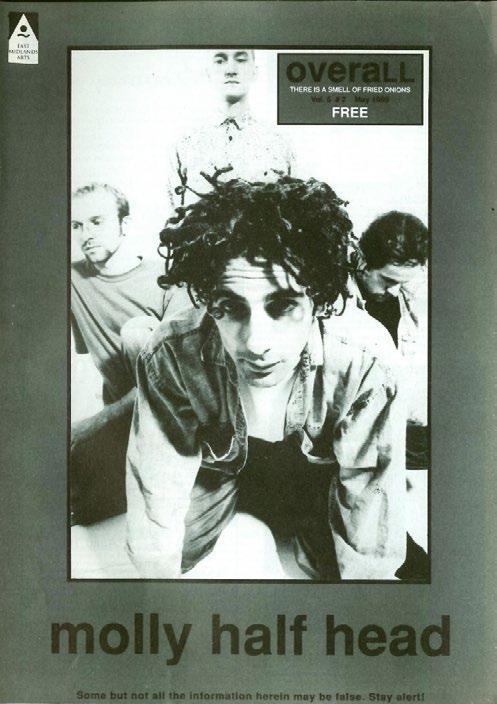
From the pages of LeftLion...
Elections
The 2005 General Election saw a lot of seats changing across the UK, as Tony Blair won his third term. However, Nottingham managed to buck the trend by staying entirely unchanged. Local Labour trio of John Heppell, Alan Simpson and Graham Allen all held their seats comfortably.
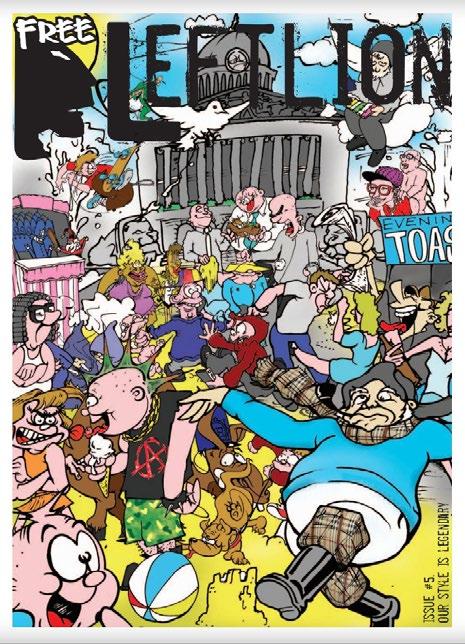
Film
Batman Begins (dir. Christopher Nolan) Lord of Dogtown (dir Catherine Hardwicke) Mr and Mrs Smith (dir. Doug Liman)
Completing an all-white all-male line-up of local leaders were Ken Clarke, Nick Palmer, Vernon Coaker and Patrick Mercer. Daytime TV host Robert Kilroy-Silk ran for UKIP in Erewash and was thoroughly beaten – his biggest public humiliation since a man in Manchester chucked a bucket of manure over him.
Film
Music
Joe Buhdha and Mista Jam were in our magazine talking about their UK Takeover gigs, which were bringing the best of the new UK hip-hop scene to the city. Local bands that were delighting us at that time were the Magic Heroes, Left of the Dealer and Hellset Orchestra. These were the days before we had such good local promoters, and LeftLion were putting on monthly gigs at the Malt Cross and the Orange Tree to showcase them. Local dance promoters we miss from these times are Psycle, Pure Filth and Kombination Funk.
From the pages of LeftLion...
ScreenLit Festival
Broadway Cinema launched their ScreenLit festival, which was to celebrate writers and screenwriters in film. Alan Partridge and The Day Today writer Armando Iannuci was one of the early winners and did an interview with us where he talked about Alistair Campbell’s influence on Malcom Tucker in The Thick of It. We wonder what he’d have made of Dominic Cummings...
Three Lions (dir. Chris Morris) Toy Story 3 (dir. Lee Unkrich) The Twilight Saga: Eclipse (dir. David Slade)
The Great Dane
Having signed for Notts County under the fake Munto millions, Kasper Schmeichel lasted a bit longer than Sven Goran Eriksson and Sol Campbell, by seeing out a whole season at the club. They went on to win the League Two title and he kept a record number of clean sheets. He did an end-of-season interview with us where he basically said his goodbyes to Nottingham. Then he went onto Leicester (via Leeds United) and won himself a Premier League title instead.
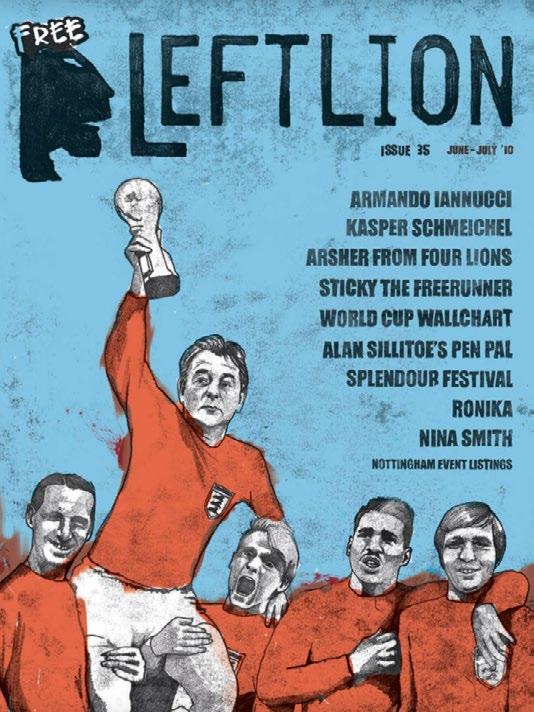
If you fancy a bit more Nottstalgia, head over to read these issues in their entirety online:
leftlion.co.uk/magazine overallmag.com

Netflix: Quantity Over Quality?
In many ways, Netflix has been the saviour of lockdown, helping to provide a constant stream of new movies while cinemas have been forced to close their doors. The likes of Extraction and Unbreakable Kimmy Schmidt: Kimmy vs the Reverend have kept us entertained or, failing that, have at least given us the chance to waste a couple of hours and get one step closer to the end of all this.
The streaming service has made a name for giving its filmmakers almost complete freedom over their work, enabling them to attract big-name directors such as Martin Scorsese and Alfonso Cuarón, with the former highlighting the importance of “having the backing of a company that says that you will have no interference.”
Yet for every Roma or The Irishman, there are a thousand cringeworthy rom-coms with truly awful names, with the last twelve months seeing the release of Love Wedding Repeat, The Knight Before Christmas and Falling Inn Love to name but a few. This begs the question, should Netflix really greenlight every idea that comes their way, or should they solely focus on the good stuff?
There is no doubting that there is an audience for easy-to-watch teen movies, but when Netflix tries to make top quality, award-worthy films, they often succeed – with their titles picking up an incredible 24 nominations at this year’s Oscars. In an era of reboots and sequels, film fans have been calling for studios to give genius directors more creative control, and Netflix has the potential to answer those calls if it invests its money more wisely.
The company recently announced that it will raise $1 billion to fund new content, and I hope that a good chunk of that goes on producing proper, authentic films. They have shown they can make genuinely good stuff, now they need to do it more often.
Nursing the Blues Away
Few musicians out there have the ability to bathe a room in warmth the way Mollie Ralph does. A local rising star, she’s been charming crowds up and down the country for a few years now, her luscious blend of pop and soul providing the backdrop for a voice that is quite remarkable – it’s depth recalling the likes of Amy Winehouse. Yet this is only half the story; by night, Mollie takes to the stage with all the glamour and glow of Norah Jones, but by day, she works on the frontlines of the NHS as a community nurse...
This unique duality underpins a recent moment of magic from Mollie: #GiveItUpForOurNurses, the dedication of her 2019 single Give It Up to NHS frontline workers amid the coronavirus pandemic. The dedication of this golden track has involved an online fundraiser – which has already exceeded its target – and a seriously heartwarming video composed of clips from Mollie and her band performing the track in their respective homes, and her colleagues and friends singing along. “It was pretty amazing – I had the idea on Sunday, and by the following Friday, it was released,” Mollie tells me. “My band members and I are always up for a challenge, and to be a part of something so much bigger than ourselves. Thankfully, I am surrounded by wonderful colleagues who support my music, and so were willing to participate by sharing video clips. I actually might need to create an extended version at some point, because I have received so many clips!”
Many of us have never experienced anything like this pandemic before in our lifetimes… So the fact I’ve been able to spread a little bit of joy is brilliant
Lyrically, Give It Up could not be more apt. Lines like “I wanna be your hero when the days get rough” and “I’m gonna be your hero when it gets too much” strike an uncanny chord right now, and you could be forgiven for thinking Mollie had penned the song in direct response to the current crisis. “I often have lengthy discussions with my dad about where to take my music next, and we were thinking about ways I could help people with my music right now,” Mollie explains after I ask when the idea for the dedication was born. “The lyrics to Give It Up really lend themselves to how frontline workers and those close to them are feeling. Particularly from my perspective as a nurse – as well as a scared civilian and a musician – it is very true that many of us ‘wanna be your hero’ right now.”
On her experience juggling her role as a musician and a community nurse, Mollie reflects: “It has been a pretty intense few years – within the same month, I started my Adult Nursing degree and went to my first open mic night – so both careers have grown together. As a newly qualified community nurse, I provide care for those unable to leave their homes. In times like these, those who are self-isolating are extremely vulnerable, and we are their first point of call. It’s a little scary and puts a lot of pressure on us, especially when we don’t have the appropriate Personal Protective Equipment.”
The crushing reality of the coronavirus pandemic has left no corner of Nottingham unaffected. Even more reason to turn to music for solace and, in doing so, Mollie certainly isn’t alone. Despite the enormous rift that coronavirus has torn in our city’s music community, it is putting up one hell of a fight. “I’m really proud of where I come from right now – a lot of my musician friends are dedicating their live streams to raising money for the NHS or local hospitals, and that selflessness is really wonderful,” Mollie smiles. As far as inspirational acts go, however, #GiveItUpForOurNurses is way up there, and marked by the same glamorous affability that characterises Mollie’s music.
justgiving.com/fundraising/mollieralph-forournurses

The video has gained over 10,000 views since it premiered on YouTube last month, and it is no surprise – footage of nurses singing into hair brushes sparks joy in the most communal of ways. “Many of us have never experienced anything like this pandemic before in our lifetimes – it’s a huge shift in how we live as a society. So the fact I’ve been able to spread a little bit of joy is brilliant,” Mollies says, overwhelmed by the reaction the video has received. “I think its success demonstrates how we needed a change from the daily doom and gloom. It truly is a wonderful thing to be a part of – to be able to show some recognition for those on the frontline working tirelessly to end this pandemic.”
While it is a largely cheerful watch, some of the participants’ stories aren’t quite so sunny, serving as a stark reminder of the impact of the pandemic on our community’s most vulnerable. “I knew it was extremely important to remember why we want to be heroes – to protect those most vulnerable in our society,” Mollie tells me. “A number of them appear in the video: Mia, my cousin who has cystic fibrosis; my sister who gave birth at the end of March; and Cibele, a wonderful friend of mine still receiving treatment for cancer. They are the reason why this lockdown is so extremely important – if we adhere to it, we can save lives. It is also a sad reminder of those vulnerable people who have died, and why it is essential we keep working hard.”
words: Becky Timmins photo: Sam Nahirny
Various Artists Circle of Light (Album)
Nearly a year on from when these young adults started what would become a life-changing and career-forming summer workshop, the fruits of their labour are now ready to listen to in physical form (or digitally, if that’s what you prefer, duck). Twenty eclectic tracks, united by a remarkably honest approach to baring all in each song – it’s been hard to ignore this busy youth music charity group since the beginning, and with this record, they’ve created a slab of local cultural history. Eileen Pegg
Forty tracks – each just thirty seconds long – make up the latest release from the I’m Not From London crew; if anyone was going to pull off something so barmy but brilliant it was always going to be these guys. All proceeds help our local heroes too, donated to key workers as nominated via the Nottstopping festival. Perfect for when our attention spans are waning, there’s no genre left uncovered in this patchwork quilt of creative skits. Responding to the same brief, outputs range from Barry Paul H’s dream-state jazz number, Postcard From My Living Room, to the adrenaline rush of Mindset’s Goosefair. The singalong guitar strums of NHS SONG from Myles Knight offer a more obvious tribute, alongside the soothing sounds of Charity Stow’s Right Now. Richard C. Bower treats us to some grounding spoken word in Tonight, where Tim Trampeater pushes things to the limits in the 15-second, I Love My Mum. Eileen Pegg
Bakes Peace Garden (Album)
There’s been a clear evolution in Bakes’ sound, from grime-inspired hip-hop he first released, to the low-fi trip hop of Peace Garden. Featuring collabs with Harvs Le Toad, Lazy Eyez and Slacs Bianci, he combines poignant lyrics with skilled musicianship and eclectic sampling. Smoke Away establishes the album’s easy-going mood while standout track, Magical Koi, takes us from Japanese pop culture to a haunting saxophone lament, to the peace garden referenced in the album’s title. Molly Dodge Taylor
Lawrence Country Frailty of Humans (Album)
Combining the sound of Americana with stories from their native Notts, this is the third album from the newly re-monikered six-piece, Lawrence County. Using gentle banjo, guitar and fiddle sounds, they switch seamlessly from traditional folk songs to contemporary politics, with a certain US president in their sights on Bye Bye Americae. Full of foot-stomping tales of local life – Dry Stone Wall and Lights Go Out are highlights – it's a stellar record that defies genre. Bagthorpe bluegrass, perhaps? Nick Parkhouse
NUSIC BOX
If you’re from Nottingham and want to get added to our music writers list, or get your tunes reviewed, hit us up at music@leftlion.co.uk
Jack Wolff
Funk-soul-genius-vibes is the best way to describe JW. Funky as owt, and one of those types of musicians that makes you go, ‘I can’t even ace the recorder, how can this guy play 57 instruments?’ A flick through his diverse back catalogue will have you funkin’ through lockdown, as well as pulling some pretty saucy bass faces. And if you’re thinking, ‘funk ain’t my vibe’ don’t worry, as the pop sensibility means we could see him having a Tom Misch-style explosion.
Your new Notts music tip sheet, as compiled by Nusic’s Sam Nahirny. Want more? Check out the fortnightly podcasts and live sessions on the Nusic website.

TJ Mystique Love Hurts (single)
Described as ‘upbeat indie-soul’, funky basslines blend with melodic harmonies, offering a contrast to the melancholic lyrics that tell the story of heartbreak.
From funky R&B soul to guitar riffs reminiscent of Mac DeMarco, the relaxed sound disguises the bitterness of the lyrics. As TJ Mystique’s third single, Love Hurts is both impressive and a promising look at what’s in store for this relative newcomer to the scene. Molly Dodge Taylor
TIGGS
Born out of the ashes of CAMARO, TIGGS is the ethereal indiepop duo of Tiegan and Carl. Mixing odd (in a good way) sounds with these big building soundscapes, this new project is very different to their former releases, but bloody heck is it good. There’s something quite hypnotic about their choruses, too; Sympathy especially has us finding ourselves singing in an almost metronome-like state. Whether they’re brain-washing us, or just making big tunes, they’re doing something right.


